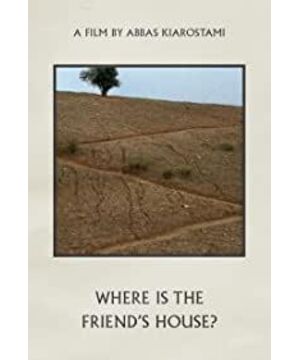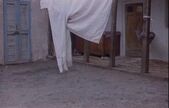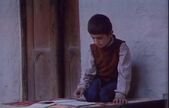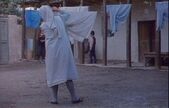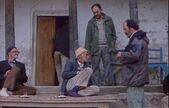Influenced by the new wave of French cinema, a documentary film in Asia and Iran. A wave of movies that broke out without the use of actresses and politics. So choose children to unfold the world of Iranian cinema.
Live-action shooting, amateur actors. Bitter tenderness. The excellent unmarked hand-held camera melts into the landscape, the long shot of the character's mind, without the kind of recording, tracking, scheduling, or capturing beauty. Through the position of the characters in the picture, the colors (the contrast between the protagonist's most vivid rust red sweater and the light blue door, mother, and the warm and cold tone of the walls), the camera positions richly show the environment of the Iranian countryside and the protagonist's situation.
The protagonist is walking on a path of search, without any right to speak, and the environment turns a deaf ear to him. Traditional things are thrown away by people. In a distorted society, dross is left behind, and excellent ancient skills have been lost. The old man is lonely but still wants to shine. The little protagonist has no right to express his emotions at all, and despite all kinds of disregard, the protagonist still has no emotional expression, but continues to run. The insertion of the old man, his expression made us feel the disappearance of an ancient era, the unkindness of the general environment towards all vulnerable groups, and his persistence.
At the end, the old man asked the protagonist's little flower in the book to tell the audience that there is still hope.
The whole movie story is simple enough, and the inserted idle pen is enough to illustrate the desolation, destruction, and barrenness of that environment.
View more about Where Is the Friend's House? reviews


